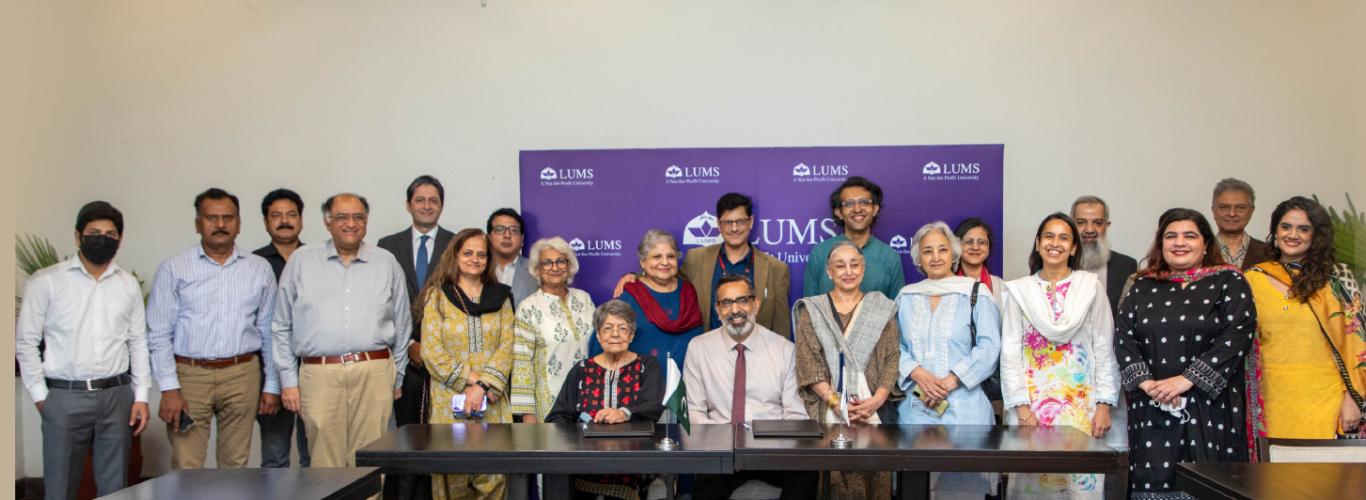Archives Preserving the History of Women in Pakistan to be Housed at LUMS
LUMS is honoured to announce a generous donation by the Applied Socio-Economic Resource Centre and Institute of Women's Studies, Lahore (ASR/IWSL), a non-profit, non-government institute and resource centre for teaching, training, research, and publication in the discipline of Women's Studies working towards social transformation. Led by Executive Director, Ms. Nighat Said Khan, ASR/IWSL has donated its research archives, including video and audio cassettes, documentaries, news clippings as well as digital archives, to the University.
Ms. Khan is a prominent activist and academic and has worked for decades to create awareness about gender issues and social welfare in Pakistan. The 'ASR/Nighat Said Khan Archival Collection', to be housed at the Saida Waheed Gender Initiative (SWGI) at LUMS, will be dedicated to preserving and expanding the history of women and other marginalised communities in Pakistan.
This agreement was formalised at an MoU signing ceremony between Ms. Khan and Dr. Arshad Ahmad, Vice Chancellor, LUMS. Also in attendance were Mr. Osman Khalid Waheed, Member, Board of Trustees; Dr. Ali Khan, Dean, Mushtaq Ahmad Gurmani School of Humanities and Social Sciences, LUMS, and Dr. Shayan Rajani, Director, SWGI.
Ms. Khan shared how the archives focused on women, class, and minorities through a feminist lens. “This is a living and accessible archive that students and researchers can access not just online but in person too. I am glad it has found a home at LUMS.”
Dr. Ahmad thanked ASR/IWSL for making LUMS the custodian of the archives. “We are thinking about how to focus more on our expertise in collaboration with experts like yourselves in a manner that can have an impact on society. This is why the promise of SWGI and these archives is very exciting!”
Dr. Rajani shared the hard work both teams had put in to make the collaboration possible. “These archives are a lifetime of work that Nighat has put in; they reflect the work and contributions of a generation of women in Pakistan.”
The archives are designated for scholars, researchers, faculty members and students of LUMS and ASR/IWSL. Members of the public can also access the collection with special permission.























